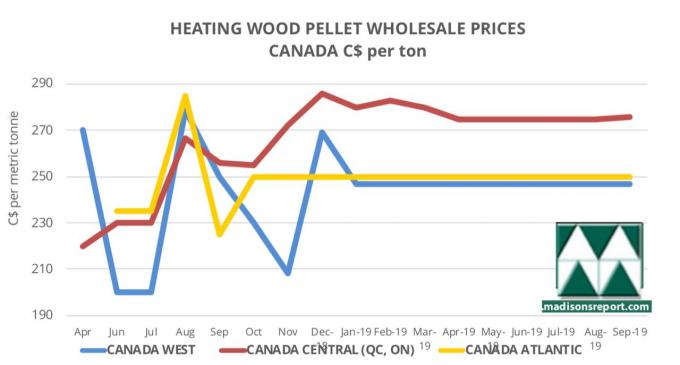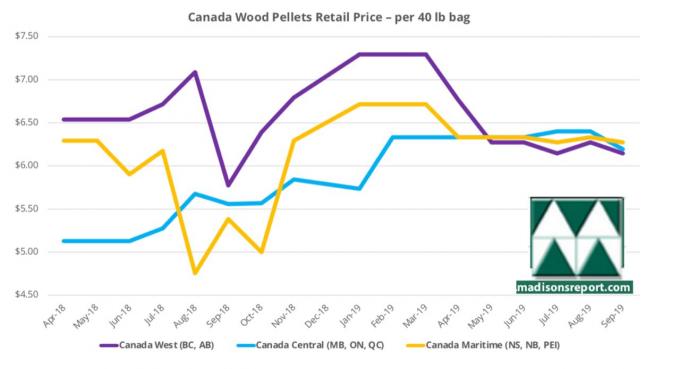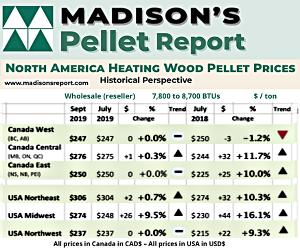For September 2019, Madison’s has determined that Canadian wholesale and retail wood pellet prices are as-yet unchanged from the summer low-season. However producers in the US northeast have already posted price increases this month.
In perhaps an indication of price movement for winter 2019, wholesale suppliers of heating wood pellets in Maine, Massachusetts, New York, and Pennsylvania raised prices in September from July: ME +7%, MA +3%, NY +12%, PA +16%.
The past year-and-a-half has been a wild ride for North American lumber prices; summer 2018 saw dizzying highs, then each week in spring 2019 brought steep drops. While the rampant sawmill closures and curtailments this year are disheartening, the good news is that the intended effect was achieved. Since Labour Day, construction framing dimension softwood lumber prices have recovered. As the business of manufacturing and selling lumber for 2019 winds down, the supply-demand balance for wood building products is restored enough to keep prices relatively stable at current levels.

The largest sawmill operators, located almost entirely in British Columbia, are to be congratulated for cutting enough production, and early enough, to prevent lumber prices from falling dangerously low. In the past the biggest manufacturers did not curtail by enough or soon enough, which kept too much lumber supply in the market and helped cause prices to drop below cost-of-production. There have been circumstances, most famously after the US housing crash of September 2006, when there was so much lumber in the supply chain that prices stayed extremely low for two years.

“While cutting significant amounts of lumber production will do well to keep commodity prices up, the reduced manufacturing volumes will result in less availability of the sawmill residuals important for pellet mills. The price of chips and sawdust in the Pacific Northwest might rise,“ said Madison’s Heating Wood Pellet Report.
If this is a very cold winter in Canada and the US, there will be enough demand for wood pellets to push those prices upward significantly. Whether this potential increase would be enough to offset a looming rise in wood chip and sawdust prices remains to be seen.
For the moment, retailers have not nudged up prices on bagged pellets in stores.
